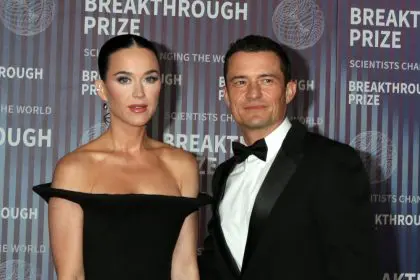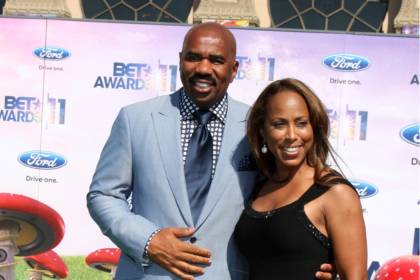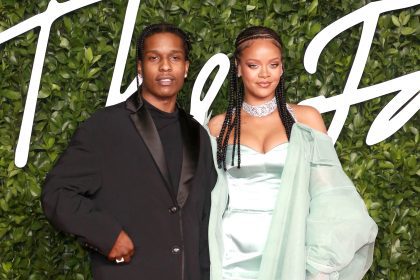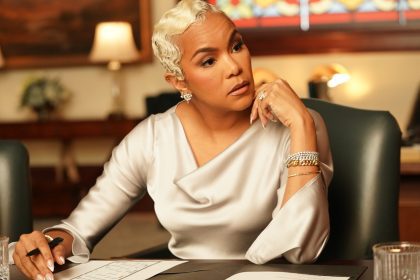When Ryan Seacrest announced “The winner of American Idol is… JAMAL ROBERTS!” on Sunday night, it wasn’t just another coronation moment in the long-running show’s history. It was the culmination of a season-long journey that saw an unprecedented 26 million Americans cast their votes—double last year’s tally—to crown a performer who defied nearly every convention of the typical Idol winner.
In a competition that has often favored certain archetypes, Roberts’ victory represents something fresh and exciting for the franchise. His win wasn’t just deserved based on vocal ability alone—it signals a shift in what viewers want from their next music superstar. But what exactly made Jamal Roberts connect so deeply with America? Let’s break down why those record-breaking 26 million votes went his way.
The vocal versatility that left the judges speechless
From his very first audition, Roberts demonstrated a rare vocal dexterity that set him apart from the competition. While many contestants excel in a single genre or style, Roberts moved effortlessly between soulful ballads, uptempo pop numbers, and even genre-bending arrangements that showcased his remarkable range.
His finale performance of “First Time” perfectly encapsulated what made him special all season. The performance featured his signature vocal control—those effortless transitions between chest voice and falsetto that became his trademark—while simultaneously demonstrating his growth as a performer. Where earlier performances might have relied heavily on vocal gymnastics, this finale showing balanced technical prowess with emotional restraint, a combination that clearly resonated with voters.
What truly distinguished Roberts from his fellow finalists was his ability to make unexpected song choices sound like they were written specifically for him. Throughout the season, he took risks with his repertoire that other contestants simply couldn’t pull off. When most contestants play it safe in the final weeks, Roberts leaned into challenging material that showcased his versatility rather than hiding behind crowd-pleasing standards.
This artistic courage didn’t go unnoticed by the judges. While they were consistently impressed by his technical ability, it was his willingness to reinvent songs that earned their highest praise. As the weeks progressed, their feedback shifted from technical critiques to broader artistic discussions, treating Roberts more like an established recording artist than a contestant—a subtle but significant acknowledgment of his star potential.
The stage presence that turned viewers into voters
Vocal talent alone doesn’t create an American Idol winner—if it did, many technically gifted contestants who failed to connect with audiences would have taken the crown in previous seasons. Roberts’ victory hinged equally on his magnetic stage presence, which visibly evolved throughout the competition.
In the finale, guest mentor Carrie Underwood noted that Roberts looked “so comfortable and at ease tonight”—a quality that doesn’t come naturally to most performers facing millions of viewers and the pressure of a finale. This comfort level allowed Roberts to focus less on hitting notes perfectly and more on connecting with the audience emotionally, creating moments that transcended the competition format.
His duet with Jelly Roll on “Liar” and “Unpretty” exemplified this connection. While many contestant-celebrity duets feel awkward or forced, Roberts matched Jelly Roll’s energy and authenticity, creating a performance that felt like a genuine collaboration between established artists rather than a competition segment. This chemistry translated through television screens and resonated with viewers who could easily imagine Roberts succeeding beyond the Idol stage.
Throughout the season, Roberts displayed a rare combination of humility and confidence that endeared him to viewers. He approached each performance with a grounded authenticity, never appearing entitled to advancement yet always delivering with the conviction of someone who belonged in the spotlight. This balance struck a chord with viewers tired of both false modesty and unearned arrogance from reality competition contestants.
The emotional intelligence that created authentic moments
Beyond his technical abilities and stage presence, Roberts demonstrated exceptional emotional intelligence throughout the competition. His song interpretations consistently revealed a deep understanding of the material’s emotional core, allowing him to connect with lyrics in ways that felt genuine rather than performative.
This emotional maturity was particularly evident in his hometown visit episode, where Roberts shared his personal journey with vulnerability while maintaining his dignity. Unlike contestants who lean heavily on dramatized backstories, Roberts allowed viewers glimpses into his life without exploiting his challenges for sympathy votes. This approach created a more authentic connection with the audience, who responded to his resilience rather than pity.
His interactions with fellow contestants further demonstrated this emotional intelligence. The moment shared with John Foster before the final announcement—where both acknowledged the honor of competing alongside each other—highlighted Roberts’ genuine respect for his competitors. This sportsmanship, increasingly rare in reality competition shows, resonated with viewers who appreciated seeing gracious competition in an often cutthroat environment.
Perhaps most importantly, Roberts maintained consistent authenticity throughout the season, never adapting a persona or narrative that felt manufactured for television. In an era where audiences are increasingly savvy about reality TV manipulation, his genuine approach cut through the typical competition noise and established a trust with viewers that translated directly into votes.
The musical identity that stood out from day one
While many Idol contestants struggle to define their musical identity, often shape-shifting based on judges’ feedback or audience reception, Roberts arrived with a clear artistic vision that he refined rather than reinvented throughout the competition.
From his audition through the finale, Roberts demonstrated an understanding of his strengths and musical preferences that allowed him to make smart song choices that showcased his abilities while revealing his artistic direction. His song selections consistently felt purposeful rather than random, creating a coherent musical narrative across the season that helped viewers envision his future career.
This clarity extended to his arrangements as well. While many contestants simply perform faithful renditions of original songs, Roberts consistently put his own spin on familiar material, whether through altered tempo, unexpected phrasing, or innovative melodic choices. These thoughtful rearrangements demonstrated musicality beyond vocal ability—suggesting an artist with producer sensibilities who could contribute meaningfully to his own recordings.
By the finale, Roberts had effectively established a musical brand that differentiated him from countless talented singers who have appeared on the Idol stage. Viewers weren’t just voting for a great voice—they were endorsing a fully formed artist with commercial potential and creative vision.
The growth narrative that kept viewers invested
The most successful Idol contestants often demonstrate visible growth throughout the competition, giving viewers a sense of participation in their artistic development. Roberts masterfully embodied this narrative, starting strong but consistently showing evolution that kept audiences invested in his journey.
His improvement wasn’t just technical—though his vocal control and performance skills certainly advanced—but extended to his comfort level, emotional connection, and artistic choices. Early performances showcased raw talent, while later rounds revealed a maturing artist developing a signature style. This progression created an aspirational arc that viewers could follow and support, making each vote feel like an investment in his development.
Unlike contestants who peak early and plateau, Roberts managed to deliver standout moments throughout the season while still saving his most compelling performances for the final weeks. This strategic pacing kept viewers engaged and prevented the fatigue that sometimes affects frontrunners who establish dominance too early in the competition.
The culmination of this growth was evident in his finale performance, which incorporated elements of everything he’d learned throughout the season while still feeling fresh and exciting. This ability to synthesize his Idol journey into a compelling final showcase gave voters confidence that he’d continue to evolve as an artist beyond the competition.
The authenticity that resonated across demographics
American Idol’s voting audience spans multiple generations and demographics, making broad appeal essential for any winner. Roberts achieved this rare cross-demographic resonance through an authenticity that transcended typical audience divisions.
His song choices throughout the season demonstrated respect for musical traditions while incorporating contemporary sensibilities, appealing to both older viewers who appreciate technical skill and younger audiences looking for relevance. This musical bridge-building created a coalition of supporters spanning age groups that typically vote for different contestant types.
Roberts also managed to embody both accessibility and artistry—a difficult balance that eludes many contestants who either feel too mainstream to excite music enthusiasts or too esoteric to connect with casual viewers. His performances satisfied those looking for technical excellence while remaining emotionally accessible to viewers with no formal music background.
Social media reaction throughout the season confirmed this broad appeal, with Roberts generating enthusiastic support across platforms with different demographic profiles. From TikTok to Facebook, his performances sparked positive conversation that ultimately translated into the record-breaking vote total that secured his victory.
The timing that met a cultural moment
Beyond Roberts’ individual qualities, his victory represents perfect timing with evolving audience preferences. As music consumption has fragmented across platforms and genres, listeners increasingly value authenticity and personal connection over industry packaging. Roberts embodies this shift, offering genuine artistry that feels more aligned with streaming-era success than traditional pop stardom.
His win signals American Idol’s continued relevance by demonstrating the show’s ability to identify talent that resonates with contemporary audiences. After years of criticism that the show produced winners who struggled to find footing in today’s music landscape, Roberts represents a potential bridge between Idol’s television platform and current industry realities.
The record-breaking vote total—double last year’s finale—suggests Roberts didn’t just win a competition, but potentially reignited enthusiasm for the franchise itself. Viewers responded not just to his individual talent, but to what he represents: a genuine artist using a traditional platform to launch what could be a thoroughly modern music career.
What’s next for the newest Idol champion
With the Idol crown secured, Roberts now faces the challenging transition from competition contestant to recording artist. His victory lap has already begun, with his finale performances accumulating millions of views across platforms and social media buzz continuing well beyond Sunday’s broadcast.
If history offers any indication, Roberts will soon enter the studio to begin work on his debut release, likely aiming to capitalize on his momentum with a quick turnaround. The most successful Idol alumni have managed this transition by maintaining the authentic connection with audiences established during the show while evolving beyond the competition format’s constraints.
Given Roberts’ clear artistic vision and the record-breaking support he received from voters, expectations for his post-Idol career are understandably high. His ability to connect across demographics suggests potential for commercial success, while his artistic choices throughout the competition hint at recordings that could satisfy both mainstream appeal and critical respect.
Whatever path his career takes, Jamal Roberts has already secured his place in American Idol history. His victory represents not just personal achievement but potentially a new chapter for a franchise continuously seeking to prove its relevance in an evolving music landscape. The 26 million Americans who voted for him have made their voices heard—now it’s his turn to use his voice to justify their faith in his star potential.

















